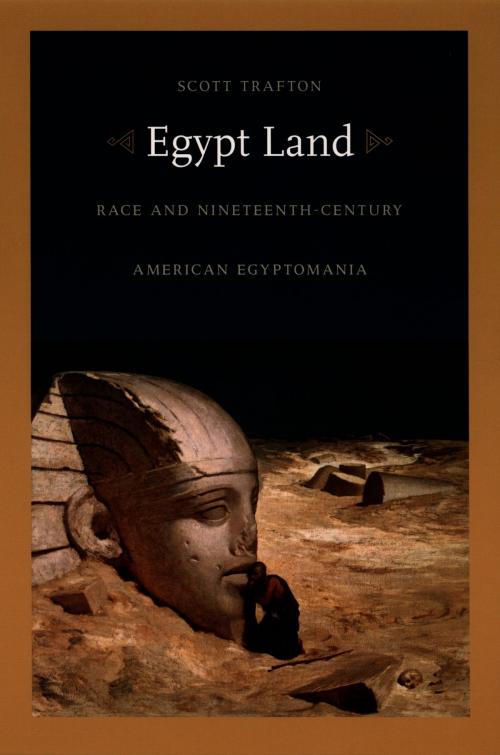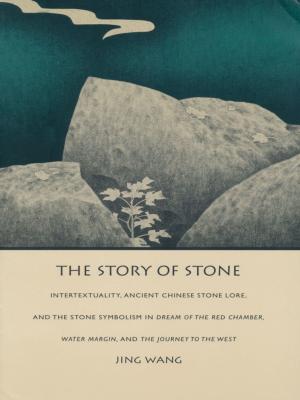Egypt Land
Race and Nineteenth-Century American Egyptomania
Nonfiction, History, Africa, Egypt, Social & Cultural Studies, Political Science, International, International Relations, Americas, United States, 19th Century| Author: | Scott Trafton, Donald E. Pease | ISBN: | 9780822386315 |
| Publisher: | Duke University Press | Publication: | November 19, 2004 |
| Imprint: | Duke University Press Books | Language: | English |
| Author: | Scott Trafton, Donald E. Pease |
| ISBN: | 9780822386315 |
| Publisher: | Duke University Press |
| Publication: | November 19, 2004 |
| Imprint: | Duke University Press Books |
| Language: | English |
Egypt Land is the first comprehensive analysis of the connections between constructions of race and representations of ancient Egypt in nineteenth-century America. Scott Trafton argues that the American mania for Egypt was directly related to anxieties over race and race-based slavery. He shows how the fascination with ancient Egypt among both black and white Americans was manifest in a range of often contradictory ways. Both groups likened the power of the United States to that of the ancient Egyptian empire, yet both also identified with ancient Egypt’s victims. As the land which represented the origins of races and nations, the power and folly of empires, despots holding people in bondage, and the exodus of the saved from the land of slavery, ancient Egypt was a uniquely useful trope for representing America’s own conflicts and anxious aspirations.
Drawing on literary and cultural studies, art and architectural history, political history, religious history, and the histories of archaeology and ethnology, Trafton illuminates anxieties related to race in different manifestations of nineteenth-century American Egyptomania, including the development of American Egyptology, the rise of racialized science, the narrative and literary tradition of the imperialist adventure tale, the cultural politics of the architectural Egyptian Revival, and the dynamics of African American Ethiopianism. He demonstrates how debates over what the United States was and what it could become returned again and again to ancient Egypt. From visions of Cleopatra to the tales of Edgar Allan Poe, from the works of Pauline Hopkins to the construction of the Washington Monument, from the measuring of slaves’ skulls to the singing of slave spirituals—claims about and representations of ancient Egypt served as linchpins for discussions about nineteenth-century American racial and national identity.
Egypt Land is the first comprehensive analysis of the connections between constructions of race and representations of ancient Egypt in nineteenth-century America. Scott Trafton argues that the American mania for Egypt was directly related to anxieties over race and race-based slavery. He shows how the fascination with ancient Egypt among both black and white Americans was manifest in a range of often contradictory ways. Both groups likened the power of the United States to that of the ancient Egyptian empire, yet both also identified with ancient Egypt’s victims. As the land which represented the origins of races and nations, the power and folly of empires, despots holding people in bondage, and the exodus of the saved from the land of slavery, ancient Egypt was a uniquely useful trope for representing America’s own conflicts and anxious aspirations.
Drawing on literary and cultural studies, art and architectural history, political history, religious history, and the histories of archaeology and ethnology, Trafton illuminates anxieties related to race in different manifestations of nineteenth-century American Egyptomania, including the development of American Egyptology, the rise of racialized science, the narrative and literary tradition of the imperialist adventure tale, the cultural politics of the architectural Egyptian Revival, and the dynamics of African American Ethiopianism. He demonstrates how debates over what the United States was and what it could become returned again and again to ancient Egypt. From visions of Cleopatra to the tales of Edgar Allan Poe, from the works of Pauline Hopkins to the construction of the Washington Monument, from the measuring of slaves’ skulls to the singing of slave spirituals—claims about and representations of ancient Egypt served as linchpins for discussions about nineteenth-century American racial and national identity.















